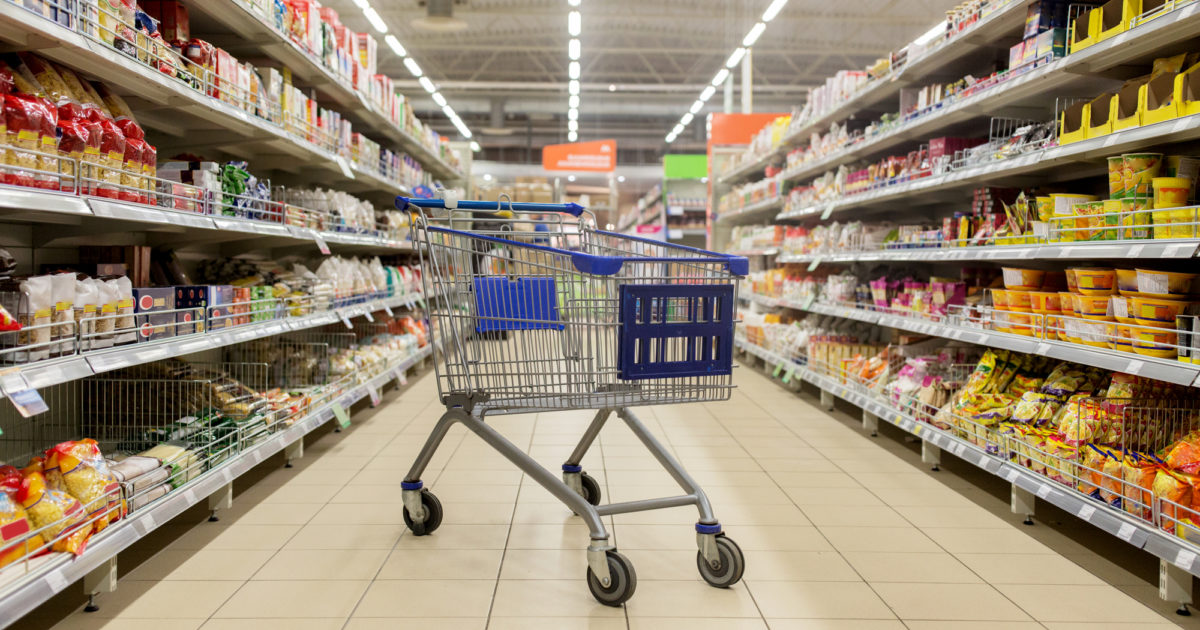On Friday evening, Buckingham Palace released a statement from Prince Andrew. ‘I have decided, as I always have, to put my duty to my family and country first,’ it read. ‘I will therefore no longer use my title or the honours which have…
Blog
-

Asian Stocks Extend Rally on US Earnings Boost: Markets Wrap
(Bloomberg) — Asian shares extended gains Tuesday, buoyed by upbeat US earnings and indications that tensions between Washington and Beijing were easing.
A regional stock gauge topped its record close as most major Asian benchmarks advanced. Chinese shares gained at the open, while Japanese equities strengthened amid expectations Sanae Takaichi will become the nation’s first female prime minister. US equity futures rose after the S&P 500 and Nasdaq 100 each gained more than 1% Monday, while gold held near highs amid bubble concerns.
Asian markets are finding fresh momentum after the S&P 500 logged its biggest two-day gain since June on Monday, with about 85% of companies beating profit estimates so far. Strong third-quarter earnings helped temper worries over the US government shutdown, while hopes of progress in US-China trade talks lifted sentiment. President Donald Trump reiterated his threat to follow through on a tariff hike on Chinese goods “if there isn’t a deal” by Nov. 1, but said he plans to meet President Xi Jinping next week.
“The strong start to the week on Wall Street has helped Asian markets to open higher today,” said Nick Twidale, chief market analyst at AT Global Markets in Sydney. “A softening in trade concerns has also helped overall sentiment, with investors taking a glass 75% full look at the market at the moment.”
Earlier this month, markets were roiled as Trump raised the prospect of a sky-high tariff rate, citing China’s “hostile” export controls. Soybean futures rallied Monday, with growers holding out hope that Trump will make a deal with China to restart stalled American exports.
Separately, shares of critical mineral producers jumped in Sydney on Tuesday after Trump signed an agreement with Australian Prime Minister Anthony Albanese to boost America’s access to rare earths and other key materials.
The Treasury 10-year yield traded below 4% and the dollar was steady early Tuesday as falling oil prices eased concern about the inflation backdrop before the release of consumer-price data.
After a delay caused by the US government shutdown, the Bureau of Labor Statistics is set to release September’s consumer price index on Friday. The data, originally slated for Oct. 15, will give Federal Reserve officials a key reading on inflation ahead of their Oct. 30 policy meeting.
The data may take on greater importance due to the government shutdown-driven data drought, said Rick Gardner at RGA Investments. He still sees a Fed cut in October and noted that a key test will be Big Tech earnings, with investors looking for clarity on how spending on artificial intelligence is leading to profitability.
“We are seeing the typical seasonal volatility in October, but the recent swings have been relatively shallow by historical standards, as the buy-the-dip mentality appears to be in play,” Gardner said.
Some of the main moves in markets:
Stocks
S&P 500 futures were little changed as of 10:32 a.m. Tokyo time Nikkei 225 futures (OSE) rose 1.1% Japan’s Topix rose 0.6% Australia’s S&P/ASX 200 rose 0.9% Hong Kong’s Hang Seng rose 1.1% The Shanghai Composite rose 0.3% Euro Stoxx 50 futures rose 0.2% Currencies
The Bloomberg Dollar Spot Index was little changed The euro was little changed at $1.1648 The Japanese yen was little changed at 150.72 per dollar The offshore yuan was little changed at 7.1208 per dollar The Australian dollar was little changed at $0.6516 Cryptocurrencies
Bitcoin fell 0.8% to $110,281.06 Ether fell 1% to $3,961.26 Bonds
The yield on 10-year Treasuries was little changed at 3.98% Japan’s 10-year yield declined one basis point to 1.660% Australia’s 10-year yield declined three basis points to 4.12% Commodities
West Texas Intermediate crude fell 0.5% to $57.22 a barrel Spot gold fell 0.2% to $4,347.44 an ounce This story was produced with the assistance of Bloomberg Automation.
–With assistance from Winnie Hsu.
©2025 Bloomberg L.P.
Continue Reading
-

BHP sees ‘resilient’ commodity demand despite slowdown in China
Unlock the Editor’s Digest for free
Roula Khalaf, Editor of the FT, selects her favourite stories in this weekly newsletter.
BHP has warned that it expects slower growth in China for the rest of the year but maintained a positive view of demand for commodities as it continues to hold talks with China over iron ore contracts.
The Australian company, the largest global miner by market capitalisation, reported a 1 per cent decline in iron ore production to 64mn tonnes during the three months to September, due to maintenance upgrades of its facilities in Western Australia.
Its copper production increased 4 per cent while steelmaking coal production grew 8 per cent in the quarter.
BHP has been embroiled in negotiations with China’s state-run iron ore buyer over the terms of future purchasing amid reports that the world’s largest consumer of iron ore has stopped buying some of the miner’s products.
Melbourne-based BHP has refused to comment on commercial negotiations with China Mineral Resources Group, which co-ordinates much of the country’s iron ore purchasing.
BHP made no reference to the talks in its production report but pointed to a slowdown in demand in the coming months.
“Overall macroeconomic signals for commodity demand remain resilient, and global growth forecasts are moving higher,” said Mike Henry, BHP chief executive. “While we expect some deceleration in growth in [the second half] of [2025], in China we still expect GDP growth of [about] 5 per cent for the year.”
BHP shares opened 2 per cent higher following the release of the production numbers. The company holds its annual meeting this week.
The Australian company, which attempted to buy UK rival Anglo American last year, has increased its exposure to copper through acquisitions in Australia and South America in the past three years and has forged ahead with a major plan to produce potash in Canada as it has looked to reduce its reliance on iron ore.
In contrast, BHP scaled back its steelmaking coal operations with the downsizing of a mine in Queensland after the state imposed higher taxes on commodity companies.
Continue Reading
-

What raises dementia risk? A drink a day, even social drinking can affect brain, says new study
Although the World Health Organisation (WHO) has been saying that no amount of alcohol is safe as it affects various organs of the body and is carcinogenic with repeated use, new research continuously proves why even limited alcohol use should no…
Continue Reading
-
Sombr claps back at ‘body shaming’ fan ahead of S.F. show – San Francisco Chronicle
- Sombr claps back at ‘body shaming’ fan ahead of S.F. show San Francisco Chronicle
- Sombr speaks out after viral TikTok criticises his concert as ‘cringe’: “Live a little” The Express Tribune
- Why Is Sombr Beefing With a 25-Year-Old…
Continue Reading
-
‘Bugonia’ review: Yorgos Lanthimos’ provocative film falls flat despite Emma Stone, Jesse Plemons – San Francisco Chronicle
- ‘Bugonia’ review: Yorgos Lanthimos’ provocative film falls flat despite Emma Stone, Jesse Plemons San Francisco Chronicle
- Go bald or go home: LA cinema offers free Bugonia ticket to those willing to shave their heads The Guardian
- San…
Continue Reading
-

Microplastics May Be Tied to Vascular Dementia Cases, Review Finds : ScienceAlert
Vascular dementia is caused by blood flow issues in the brain: it’s one of the most common types of dementia, but not as well researched or understood as others.
Neuropathologist Elaine Bearer from the University of New Mexico is trying to…
Continue Reading
-

Late Injuries Shake Up Ireland Squad for Chicago Clash » allblacks.com
Ireland is preparing to head to Chicago for their Test with the All Blacks on Saturday next week with a string of injury concerns.
Wing Mack Hansen has been forced out of the touring squad while uncapped forwards Edwin Edogbo…
Continue Reading
-

ST Engineering Establishes Cybersecurity Centre of Excellence to Advance Agentic AI Innovation
Singapore, 21 October 2025 – ST Engineering today announced the establishment of its Cybersecurity Centre of Excellence (CoE) aimed at accelerating the development of agentic AI-driven cybersecurity solutions. Supported by Digital Industry Singapore (a joint office by the Economic Development Board, Enterprise Singapore and Infocomm Media Development Authority) and the Cyber Security Agency of Singapore (CSA), the CoE will strengthen ST Engineering’s cybersecurity capabilities, cultivate a skilled talent pipeline and drive innovation in the cybersecurity sector.
The Cybersecurity CoE will deliver enhanced cyber defence across enterprise IT, 5G, and OT/IoT systems, addressing the next wave of advanced threats. It will start with 26 specialists and grow to an 81-strong team, which will focus on AI, 5G, OT cybersecurity, threat response and security testing.
Building on ST Engineering’s proven expertise in designing and operating Security Operations Centres (SOCs) for critical information infrastructures, the Cybersecurity CoE will advance agentic AI application in next-generation SOCs, digital forensics, and incident response. These autonomous, self-learning solutions provide broader coverage, greater precision, and independent decision-making beyond traditional SOC capabilities. By continuously adapting to evolving cyber threats, the CoE positions ST Engineering at the forefront of industry-leading autonomous cybersecurity innovations.
“With AI and quantum computing, cyber threats are evolving faster and becoming more sophisticated. The Cybersecurity Centre of Excellence will bring together talent, research and advanced AI to strengthen our capabilities to develop cyber defences that are smarter, faster and more adaptive to new threats. Our Agentic AI SOC solution has already redefined new standards in detection and response – mitigating threats in seconds to swiftly protect critical systems,” said Goh Eng Choon, President of Cyber, ST Engineering.
“Digital Industry Singapore (DISG) welcomes the establishment of ST Engineering’s Cybersecurity Centre of Excellence (CoE), accelerating Singapore’s ambition for AI-driven cyber resilience and strengthening our national defence against evolving threats,” said Philbert Gomez, Executive Director & Head, Digital Industry Singapore. “The CoE will be a vital hub for developing autonomous AI solutions that will directly empower cybersecurity practitioners and enhance our capability to detect and combat sophisticated cyber threats at scale. This partnership reinforces Singapore’s resolve to be a globally leading AI hub.”
The Cybersecurity CoE will also nurture the next generation of cybersecurity talent through dedicated labs and training programmes at institutes of higher learning in Singapore, including Republic Polytechnic and Singapore Polytechnic. ST Engineering will train and upskill students on agentic AI solutions developed at the CoE, preparing them to thrive in AI-assisted cybersecurity environments and to harness agentic AI alongside other advanced technologies.
*****
For media enquiries, please write to us at news@stengg.com.
Continue Reading
-

Energy & Climate Intelligence Unit
The price of foods hit by extreme weather are rising over four times faster than others in the average shop according to new analysis from the Energy & Climate Intelligence Unit (ECIU) [1].
Using the latest ONS inflation data (August 2025), the analysis finds that although these items make up just 11% of the average shopping basket, they account for nearly 40% of all food price inflation.
Prices for these five foods – butter, beef, milk, coffee and chocolate – have risen by an average of 15.6% over the past year, compared with just 2.8% for other food and drink [1].
The findings come as food inflation remains a key contributor to the UK’s headline inflation rate, with the Bank of England warning that extreme weather is increasingly influencing prices [2], making it harder for them to bring inflation back to the two percent target. The analysis also challenges recent reports that increases to the minimum wage, employer national insurance and the introduction of a packaging tax are driving inflation. These are unlikely to have had a major impact on the five foods that ECIU have found to be driving inflation.
Chris Jaccarini, food and farming analyst at the Energy and Climate Intelligence Unit (ECIU) said: “Shoppers will have noticed that the price of the weekly shop has shot up in recent years. At 73p, a pint of milk now costs 23p more than it did at start of the gas crisis [1]. Milk, butter, beef, chocolate, coffee and olive oil have all been hit by extreme weather and have all become much more expensive. Both butter and beef prices have been driven up by poor grass growth after a historically hot, dry summer, forcing farmers to rely more heavily on bought-in feed. At the same time, a virus outbreak in European dairy herds, which scientists warn is more likely due to climate change, has kept demand for British dairy high.
“While a higher minimum wage and national insurance contributions play a role in food price inflation, they don’t explain why coffee, chocolate or butter prices are surging. Climate shocks are a big factor for these products though, and until we reach net zero emissions and stabilise the climate, households will keep seeing prices rise.
“After the warmest spring and summer and the driest spring in over 100 years, England had its second worst harvest on record this year [3]. This follows last year’s poor harvest which came after incredibly heavy rainfall, made worse by climate change [4]. We have now seen three of the five worst harvests on record this decade driven by extreme weather, telling a story of escalating climate impacts that farmers are struggling to cope with.”
As highlighted in the Bank of England’s August Monetary Policy Report ‘…dry weather conditions are pushing up the production costs of beef and some dairy products in the UK and elsewhere, as cows must be fed silage earlier in the year due to less grass growth [2].’ Alongside a major outbreak of bluetongue hitting milk production in Europe, the risk of which is known to be increased by climate change, [5] this has tightened the availability of milk, and cream pushing up prices.
It is not just British-grown foods that are at risk. The UK imports around 40% [6] of its food from overseas, including many staples like rice, bananas and tea, which we cannot simply grow at home. The commodity price for cocoa, essential for chocolate, has more than tripled in the past three years and doubled in the past two years [1], after extreme heat and rainfall in West Africa hit the cocoa harvest [7]. Much of this surge has yet to fully reach consumer prices, which have risen by a quarter in the past two years and 45% over three years.
Similarly, commodity prices for coffee rose sharply at the end of 2023 and continued to climb through 2024, reaching a peak in March 2025. Again, extreme weather played a major role, with drought in key coffee producing regions such as Brazil and Vietnam [1]. According to FAO estimates, it typically takes around one year for changes in raw coffee prices to filter through to retail prices, with effects lasting at least four years [8].
Anna Taylor OBE, Executive Director of the Food Foundation said: “We are seeing the price of certain products being driven up by extreme weather. This is a worrying trend. Government must treat this as a food security issue, and take steps to build the resilience of farming and our supply chains to shocks, so we can better buffer them. Otherwise, the weekly shop will keep getting more unpredictable – and more unaffordable – for millions of households.”
In 2022–23, climate impacts added an estimated £360 to the average UK household food bill [9]. Government forecasts suggest that the climate exposure of British households will deepen, with over half of UK fruit and legume imports coming from climate-vulnerable countries by 2050 [6].
Chris Jaccarini, food and farming analyst at the Energy and Climate Intelligence Unit (ECIU) said: “Central banks are clear that climate change increases food prices in ways they cannot control or predict, creating systemic risk to our food system [10]. There is no monetary policy lever they can pull to address this. Only by reducing our emissions to net zero and bringing balance back to our climate will we limit the impact of climate change on food prices in the future.”
ENDS
Notes to editors:
1. The analysis, which focused on butter, beef and veal, whole milk, chocolate and coffee, is available to download here.
2. August Bank of England Monetary Policy Committee Report and recent interview with Isabel Schnabel, Member of the Executive Board of the ECB
3. ECIU Comment on 2025 Defra Harvest Statistics
4. https://www.worldweatherattribution.org/autumn-and-winter-storms-over-uk-and-ireland-are-becoming-wetter-due-to-climate-change/
5. https://www.nature.com/articles/s41558-018-0376-6
6. Government -produced UK Food Security Report 2024.
7. https://www.worldweatherattribution.org/dangerous-humid-heat-in-southern-west-africa-about-4c-hotter-due-to-climate-change/
8. Reuters reporting on FAO report.
9. ECIU, Climate, Fossil Fuels and UK Food Prices: 2023
10. https://www.ecb.europa.eu/pub/pdf/scpwps/ecb.wp2821~f008e5cb9c.en.pdf
For more information or for interview requests:
George Smeeton, Head of Communications, ECIU, Tel: 07894 571 153, email: george.smeeton@eciu.net
Continue Reading
